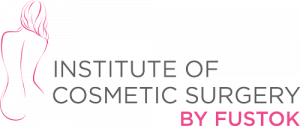Breast Augmentation
Breast augmentation is a surgical procedure designed to enhance the breasts, by adding volume to otherwise small well developed breasts. The volume is provided by breast implant. There are two types of implants that we use; the silicone saline filled inflatable ones and the silicones gel prefilled. Both come with different sizes. This procedure was born in Houston Texas in early sixties.
It is an outpatient procedure.
Depending on the breasts condition the surgery takes from one and half to two hours. Afterward the patient spends another hour and half recovering from the general anesthetic before she can be discharged to the care of a family member or a friend. The patient will not be allowed to drive home and should not be alone the first post operative night or as long as she is taking pain medication.
The patient should not drive the first couple of days post operatively, and while taking any pain medication. If the healing is progressing well the patient will be cleared to drive a few days later if she is using a power steering automatic car.
It is very important to avoid abdominal distention due to food. That is why the patient will be on liquid diet initially and as the healing progresses the diet will be adjusted accordingly.
Complete symmetry between any two breasts on the same person is exceptional. There is almost always some asymmetry. One side can be smaller, lower, narrower, or wider. When asymmetry is present before the surgery it will be present after even though Dr Fustok will attempt to correct it and in this respect saline inflatable implant provide more flexibility.
No two individuals heal the same way. If it is a desk job most people can resume it in a few days. Any job involving heavy lifting or pushing would require additional time off. This will be determined in consultation between the patient and Dr Fustok.
The fee that is quoted shall cover the doctor fee, anesthesia, the implants and the facility (Dr Fustok is a part owner of the facility that you will be taken to) In addition to three months of follow up. If as a consequence of the surgery any other additional one related to it is undertaken there will be additional fee.
There are risks involved in any surgery; such as infection, seroma, hematoma, loss of nipple sensation etc.Capsular formation: Once the implant is inserted it will automatically trigger a formation of a capsule. The capsule is a lining of the pocket and most of the time it is asymptomatic. But if it thickens overtime it may cause the breast to feel firm. This process could ultimately lead to the breast feeling extremely firm to the point of causing soreness. Furthermore over time the implant may migrate downward or laterally causing aesthetic problem. Long-term the capsule may fix calcium deposit, which may necessitate additional surgical correction for which there would be additional financial charges. Any time surgery is performed it will result in scarring. The scares can vary considerably depending on the way each body heals. Scares can be either normal to thick and raised to keloid in nature. Genetic, health condition, nutrition, immune system, stress, all play a role in the qualities of the scares. There are multiple ways as to how and where they are positioned. The access to placing the implants varies from through the inframammary fold, around the areola or through the axillea (Arm pit), some from the umbilicus. Dr Fustok will discuss with you the pro and con of every one of these techniques. The implants can be placed either in a sub mammary or sub muscular. This too will be explained in details by Dr Fustok. Saline implants may deflate spontaneously or secondary to a direct chest trauma. The manufacture of the implant would provide one year warranty or an extended one. Dr Fustok and the staff will elucidate this matter to the patient. The manufacturer warranty will not cover traumatic deflation it would cover only the spontaneous ones.
Three weeks.
Even though potentially complications are rare nonetheless anyone considering this elective surgery should become aware of them. Dr Fustok will discuss those with you in detail during your consultation. There is potential complications related to general anesthesia that the patient will have ample opportunity to inquiring about those during the interview with the anesthesia team prior to surgery.
No two individuals are alike; each person will be evaluated according to the person health, history, healing and disposition and advised accordingly.
These are answers to the most common asked questions. We feel the more informed our patients are the better we feel. This information was not meant to be exhaustive or complete. Dr. Fustok will give you additional information during the consultation and will answer to the best of his knowledge any inquiry. Surgery is an art not an exact science.
